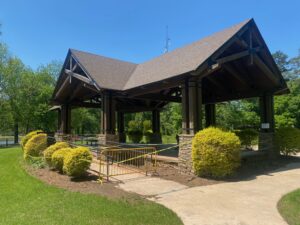Peachtree City Councilman Eric Imker, who campaigned for office on a pledge to not increase city taxes, broke a deadlocked city council and voted in favor of a 1.25 mill property tax rate increase Thursday night.
The measure was approved 3-2 with Imker joining councilwomen Vanessa Fleisch and Kim Learnard in favor and Mayor Don Haddix and councilman Doug Sturbaum voting against.
Imker said while he will stun some of his supporters by voting for the tax increase, he felt he was elected to office to solve the city’s budget woes, which have resulted in a projected $18 million shortfall over the next five years after $2 million in cuts approved by council earlier this year.
Imker also pointed out that the 1.25 mill increase would take less in property taxes from city residents over a five-year stretch than the .5 mill increase this year and subsequent higher increases over the same period of time.
In fact, the .5 mill increase this year would require an additional .75 mills of tax increase over the same five-year period compared to the 1.25 mill increase this year, Imker said. The 1.25 mill increase which would result in a $108 a year increase on a home valued at $272,000.
The tax increase will bring the city an additional $2.28 million in revenue for the city, some of which will be used to build up the city’s reserves, which will be spent down in 2013, 2014 and 2015 to avoid the $18 million shortfall.
The shortfall is due largely to two factors: the expiration of the transportation special sales tax, meaning the city will have to start funding road and path maintenance at $1.5 million a year and the anticipated loss of per-capita based local option sales tax revenues due to slowed population growth compared to other cities in the county and the unincorporated county itself.
Imker also proposed a slate of budget cuts that were shot down by the other four council members including:
• An across-the board 1 percent pay cut for all city employees;
• A 32-hour furlough for all full-time employees;
• Eliminating the city’s match to participants in 401(k) retirement savings accounts;
• Eliminating the city’s match to participants in 401(k) retirement savings accounts and restore the city’s funding of $600 a year in medical insurance premiums which the city cut from employees two years ago in a cost-saving measure;
• Eliminating one staffer from the city’s recreation department; and
• Eliminating one staffer from the city’s public works department;
Imker did score one partial victory in his suggestion that the city eliminate a three percent “bonus” match to the 401(k) accounts of the city’s seven department directors and chiefs. Doing so would save about $19,000 and council agreed by consensus to get staff input for consideration at a later meeting.
After the meeting, Imker told The Citizen that without any action on his budget reduction suggestions, the only alternative was for the city to raise property taxes.
Council also unanimously passed new budget policies that would require any new expenditures to be balanced with new revenue sources for the budget and also recommends tying any special sales tax (SPLOST) revenue to the city’s millage rate such that such taxes or additional voter-approved revenue would necessitate a look at decreasing the millage rate, and when such revenues expire they would consider an increase in the millage rate.










Leave a Comment
You must be logged in to post a comment.